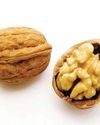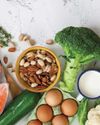
The term “vitamin A” is more complicated than you think. There are two dietary forms:
Preformed vitamin A, found in fish, eggs, dairy, and meat, doesn’t require conversion and is readily available and usable by the body.
Provitamin A carotenoids, found in plant foods, are converted by the body into retinol, the active form of vitamin A.
Beta-carotene is the primary provitamin A carotenoid. Unfortunately, the conversion process is highly inefficient, and only a small percentage of beta-carotene gets transformed into vitamin A. The process depends on a number of factors, especially healthy gut function and the presence of other nutrients including riboflavin, niacin, iron, zinc, and protein.
Not to say that’s entirely bad. Betacarotene that’s not converted into vitamin A circulates through the body and acts as an antioxidant, protecting the cells from free radical damage, lowering inflammation, and reducing the risk of cancer, heart disease, and other diseases.
Are You Getting Enough?
This story is from the April 2020 edition of Better Nutrition.
Start your 7-day Magzter GOLD free trial to access thousands of curated premium stories, and 8,500+ magazines and newspapers.
Already a subscriber ? Sign In
This story is from the April 2020 edition of Better Nutrition.
Start your 7-day Magzter GOLD free trial to access thousands of curated premium stories, and 8,500+ magazines and newspapers.
Already a subscriber? Sign In

Strike A Healing Chord
Soothe your mind, body, and spirit with three simple sound therapy techniques for self-care.

Laura's Gourmet Granola
If you’re tired of granola that’s more candy than health food, chef and entrepreneur Laura Briscoe’s offerings are just what you’ve been looking for.

News Bites
Caffeine, Peanuts, CoQ10, and Iron Deficiency.

The Overlooked Keys to a Healthy Gallbladder
Keep your bile thin and free-flowing by focusing on supportive foods, supplements, and physical activity.

Go Nutty This Year
This über-healthy alternative to traditional lattes features homemadewalnut “mylk,” along with antioxidant-rich green tea and berries.

The Three Stages of Infection
What you need before, during and after an illness, and why you need different fixes for each stage.
Taming the Flames
How to beat back chronic inflammation and protect yourself from related disease.

Deconstructing the Flexitarian Diet
How being a part-time vegan can make you healthier.

Brain Regain
How one senior used a leptin-focused diet (high-fat, no carbs) to recover from a cognitive injury, reconnect with his family, and reclaim his health.

Healthy Aging— Head To Toe
Science-backed supplements to protect all your parts.